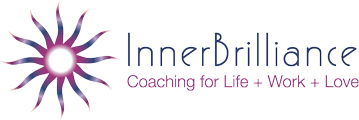 Do you feel like you always have to get it right? Or, have the perfect answer immediately?
Do you feel like you always have to get it right? Or, have the perfect answer immediately?
At work? Even, at home?
In our society, being right seems to be exalted. When we go to school and do well on assignments and tests, we’re rewarded with a “good” grade. At work, many are paid to “get it right.” At home, especially if raising children, the stakes seem high that we have to “be right” with our approach.
This mindset can be restrictive and even paralyzing. I know I’ve had perfectionist tendencies in the past. This perfectionism was based on analysis, rationale, and reasoning. Although important to think strategically and consider information, this approach can cut us off from our emotions which also provides important information to us. Ultimately, this perspective doesn’t give us much room to learn, grow, or innovate. And, it can feel exhausting!
Try Being Curious
When I started my coaching courses, I learned the benefit of not being right BUT being curious. In fact, now my job is centered around asking my clients questions without necessarily providing them answers or being “right.” The questions I ask invite them to explore various directions and find their own answers without any preconceived conclusions of my own. These types of questions and approach help bring about more authentic information.
Best part…being curious feels more playful and “less dangerous” than trying to find the perfect, right answer. So, it opens up the possibilities for many more opportunities we might otherwise avoid because we judge that option.
How To…
So, if you’re ready to release the burden of being right or perfect, try the following tips to be curious:
- Assume people are creative, resourceful, and whole.
- When I work with my clients, I assume they are all of these qualities. I feel less compelled to have all the answers, so I feel calmer while exploring options with them. They also feel this way and give themselves permission to explore further.
- Try new things at least once a week.
- Doing something new releases the chemical dopamine in your body – the feel good hormone – so you will feel happier.
- Remain unattached to the final answer.
- This unattached approach can still be powerful and feel exciting, but it doesn’t require the “controlling” energy of being right/perfect.
- Think of a child you know and how they ask questions and remain open.
- They have space for new answers to come in to their lives.
- Identify an emotion you’re having during a difficult time.
- Notice if you feel a sensation in your body. Allow yourself to really feel the emotion and see what information it can be providing.
So being curious can help you be open instead of judgmental, resourceful instead of rigid, engaged instead of closed off, and energized instead of engineered. It really can provide room in your life to make changes.
And, being curious can leave you feeling calmer, happier, creative, and with access to more solutions. Where could you be a little more curious in your life?
If you want a fun way to practice being curious, check out one of my favorite books How to Think Like Leonardo da Vinci: Seven Steps to Genius Every Day. He has a whole section on being curious – it even involves wine tasting. Now, that sounds like a fun assignment!







